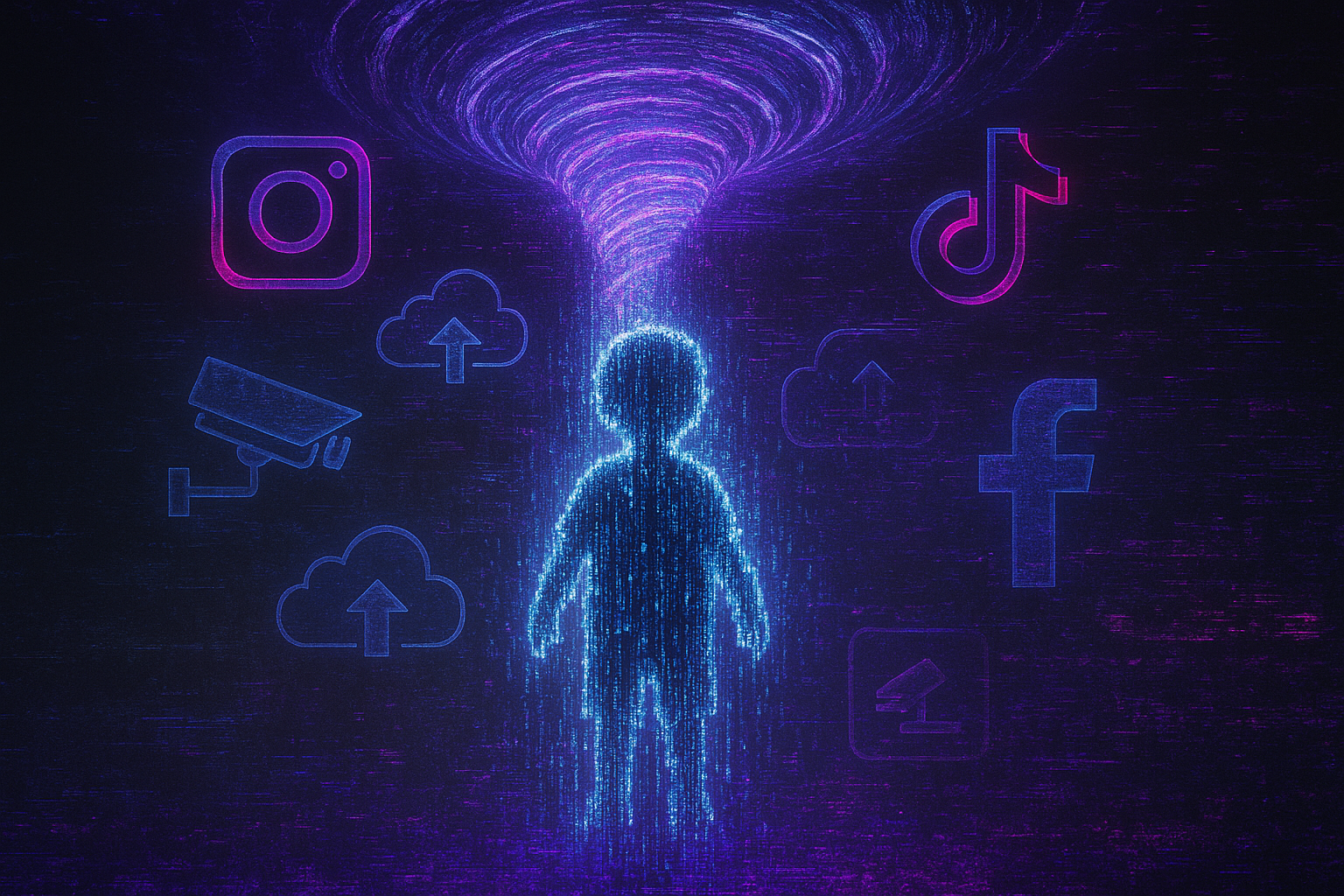Why Posting Your Children’s Photos Online Could Be Risky: 7 Important Reasons
Published on

Even before I had children, I knew one thing for sure: I would never share their images on any public platform. And since becoming a parent, that belief has only grown stronger.
That’s why it always shocks me to see how many parents regularly post photos of their kids online. I come across it all the time.
In fact, research shows that 75% of parents have shared their children’s photos on the internet.
It made me pause and think: What are the real risks of sharing kids’ photos online? Is there a safe way to do it?
After diving into the research, my answer is clear: no, it’s not safe.
Here are 7 crucial reasons why even an innocent photo could carry long-term risks for your child.
1: A Permanent, Uncontrollable Digital Footprint
Every photo you share adds to your child’s digital footprint. Once something is online, it often never truly goes away. Even if you delete a post, copies or screenshots may exist elsewhere. Kaspersky, a global cybersecurity company, warns that “everything that is shared on the internet could leave a permanent trail” – from ultrasound announcements to birthday parties. Social platforms even claim ownership of your photos by their terms of service, so once you upload it, you can’t dictate where it ends up. In short, a spontaneous smile today might be floating around the internet years later, beyond your control.
2: Privacy Violations and Lack of Consent
Young children cannot consent to having their lives documented online. A big problem with sharenting (the practice of sharing about your kids online) is that kids have no say in the matter. As Dr. Phil Boucher, a paediatrician at Frontier Pediatric Care, explains:
“Sharing private or potentially embarrassing moments can affect their self‑esteem and their right to control their digital footprint.” (parents.com)
By sharing pictures and personal information of their children online, parents are essentially shaping their child's identity without their consent.
Privacy experts note this can lead to resentment: many adolescents feel violated when they discover their childhood was broadcast online without their consent.
3: Exposure to Predators and Strangers
Here’s the really scary part: you never really know who’s looking at your child’s photo. Most of us have online “friends” we’ve never actually met—and that friendly-looking profile might not be who you think it is.
Photos meant for your aunt could easily end up in the hands of complete strangers. Criminals can analyse pictures for background clues—like a school badge or a street name. And don’t forget about hidden metadata or geotags, which can literally reveal your child’s location.
Even worse? There are AI tools now that can take an ordinary photo and generate disturbing or sexualised images from it. That thought alone is enough to make me never post anything.
4: Identity Theft and Data Exploitation
It turns out kids are prime targets for identity theft. Their information is like gold to cybercriminals, because it’s fresh, unmonitored, and often goes undetected for years.
Barclays predicts that by 2030, sharenting could account for two-thirds of all identity fraud cases. Let that sink in. And one report suggests this could cost families nearly $900 million annually.
Even what seems harmless—like a birthday or pet’s name—can help hackers crack security questions. Basically, every detail you post becomes another breadcrumb for someone to exploit.
5: Damage to Future Self-Esteem and Relationships
What’s funny or cute now might make your child cringe later. We all have embarrassing childhood moments, but imagine if yours were permanently online.
Studies show many teens resent their parents for oversharing—especially when it feels like part of a perfect family image. And it’s not just about embarrassment. It can break trust too.
We want to share the joy, but not at the cost of our child’s privacy and autonomy.
6: Misuse, Deepfakes, and “Digital Kidnapping”
This one truly creeps me out. "Digital kidnapping" is when someone takes your child’s photo and pretends the child is theirs. They post it on their own social accounts and make up entire stories around it.
And then there are deepfakes. With just a photo, AI can now generate fake videos or voices that look and sound like your child. It’s disturbing—and it’s already happening.
As veteran detective Brian Miller puts it:
“These predators will make themselves out to be anyone… These predators will go as far as threatening... They will reach out to your child like they are a friend or someone their age… Online predators have no boundaries.” (bigrapidsnews)
7: Data Profiling, Commercial Exploitation, and Legal Issues
Everything we post is fuel for data-hungry tech companies. Childhood photos, interests, routines—it’s all used to build digital profiles. And yes, that data can follow your child for life.
Bitdefender warns that this could influence future decisions—like university admissions, insurance rates, or even job opportunities. It’s wild to think about, but it’s very real.
Some countries like France and Germany are already recognising kids’ legal right to privacy online. In extreme cases, courts have even ruled that oversharing crosses the line into exploitation. That’s how serious this is becoming.
So… can you share safely?
Maybe. But it requires extreme care. Experts say you should:
- Keep accounts private
- Turn off geotags and metadata
- Avoid names, locations, or identifiers
- Only share with trusted people
But even then, there’s no guarantee. “Private” posts still get screenshotted and shared.
Honestly? The safest option is to not post at all.
Takeaway:
It’s so tempting to share that adorable moment—but once it’s out there, it’s out of your control. Oversharing might seem harmless now, but the risks to your child’s safety, identity, and future are very real.
So next time, before posting, pause and ask yourself: Is this really worth it?